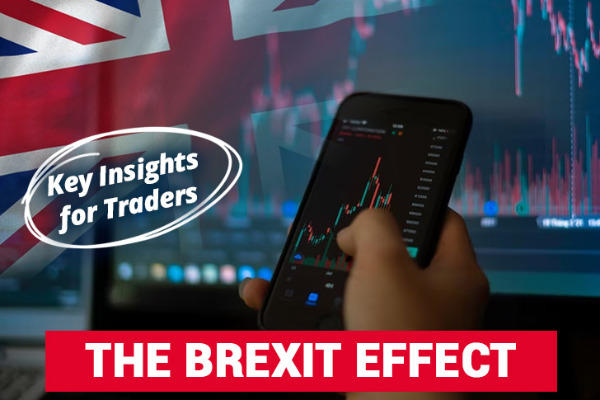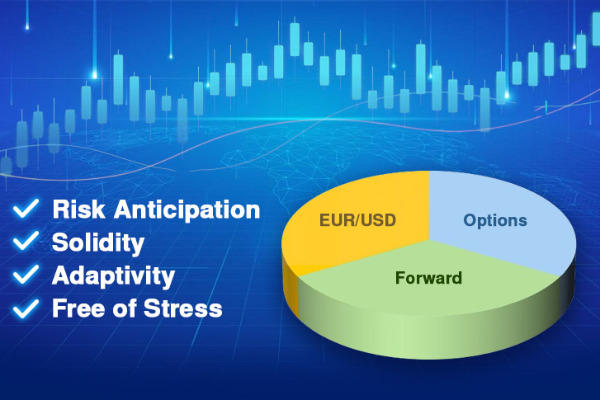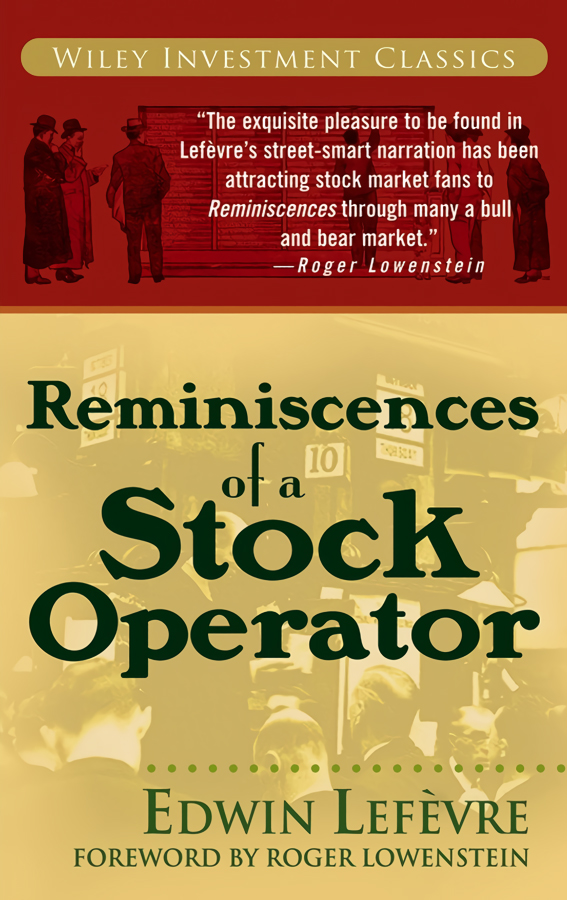The collapse of Archegos was a shock to the global community. Here are the five most important lessons that you can take from the case.
The dramatic collapse of Archegos Capital Management has sent shockwaves across the global financial community. It happened in March 2021 after Archegos reportedly made huge bets on stocks through securities known as total return swaps. This has caused a fire sale in stocks, resulting in awfully massive losses for a number of major banks like Credit Suisse Group AG (CSGN.S) and Nomura Holdings Inc (8604.T).
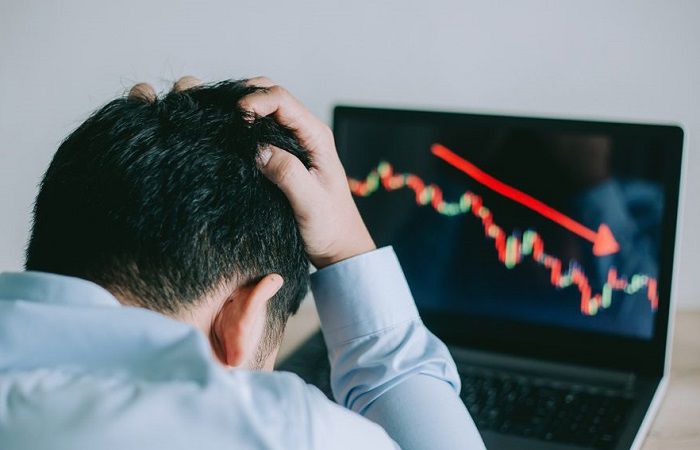
It was definitely quite an eye-opening situation for a lot of parties, including retail traders. Although it is less likely for individual retail traders to use complicated trading strategies involving advanced derivative instruments, this incident should not be ignored regardless. It's worth remembering that the main difference between institutional and retail traders is that the former can handle a hard blow or two, while the latter is mostly not that fortunate.
While portfolio managers who succeed at least once might get a second chance to generate returns, retail traders must act as their own bosses. They should bear the consequences of their own decisions every single time – both the good and the bad. Thus, it is important to be able to assess the situation and learn to protect yourself from super damaging losses.
Today, we're going to unfold 5 valuable lessons from the downfall of Archegos that every trader should know.
Contents
The Collapse of Archegos
Archegos Capital Management was a $10 billion family company founded in 2013 by a well-known New York investor, Bill Hwang. The business was actually going really well before Hwang began to overuse leverage to search for higher returns in the market. One of his trading strategies for the company was mostly focused on derivative instruments or swaps from banks called Contracts-for-Difference (CFDs).
In CFD trading, a trader basically makes a deal with a bank or broker and benefits from price movements without actually owning the asset. This is where financial leverage comes into play. Leverage is an investment tool that allows traders to gain exposure to the market with less amount of capital, known as margin. That being said, Archegos could open large positions by using leverage with a smaller amount of money (in winning trades).
Hwang started to use the borrowed money to make big bets on technology stocks like Viacom CBS, Discovery, and Baidu. These stocks actually performed quite well at the beginning of 2021, but then suddenly collapsed in late March, automatically triggering margin calls from the banks. Unfortunately, Archegos failed to meet those margin calls so the banks were forced to quickly drop the shares they held to cover the debts.
On March 29, two major investment banks Credit Suisse and Nomura both announced that the fire sale had significantly impacted their businesses. Their losses have been estimated at roughly $10 billion in value. Meanwhile, some other banks including Goldman Sachs, Morgan Stanley, UBS, and Deutsche Bank also made a deal with Archegos, but they weren't impacted as much because they were so quick in exiting the fund's shares that week.
After causing such big losses, Bill Hwang was finally arrested in April 2022. The authorities charged with fraud, racketeering, and market manipulation.
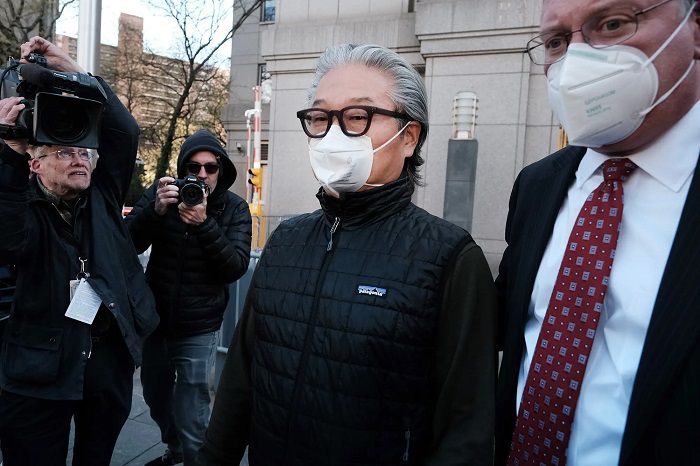
The Aftermath
The case of Archegos has raised a few questions about the vulnerability of prime brokers offering high leverage to hedge fund clients. Morgan Stanley and other banks have reportedly started to review their relationships with clients, especially those who have dealings with several prime brokerages at once. The Fed has also stated that the event has revealed weaknesses in margin trading and counterparty risk management in some companies. They stressed the importance of coordination between global regulators across state borders. It is certainly a huge wake-up call for the whole industry and definitely should not be underestimated.
Lesson Learned for Retail Traders
If you are interested in investing in stocks, there are several things that you need to consider. Here are the top lessons from the Archegos case that every trader needs to know.
1. Calculate Your Exposure
The first thing to note is to manage your exposure wisely. The Archegos case has proven that even if you do have $10 billion in your pocket, you can still end up having too much exposure. Although they had realized that their borrowing was overextended, they still proceed anyway. This is certainly not a good decision, considering the damage that they caused later on.
2. Use Leverage Wisely (Or Not At All)
As explained above, poorly managed leverage was the main cause of Archegos' downfall. Every trader must fully understand that leverage can amplify both the profit and the loss of a trade. If a trade is leveraged 10 times, it only needs to reach a 10% loss to wipe out. In other words, leveraged trading offers a high-risk, high-return type of investment that is certainly not suitable for everyone.
Warren Buffet, the legendary American investor and billionaire even called derivatives as "the financial weapons of mass destruction", which means they can be very damaging if not used properly.
That being said, if you know how to use it and you're confident with your skills, then go for it. Leverage can indeed generate bigger returns in winning trades. However, if you're a beginner, leverage is certainly not recommended. Stay away from using tools that you don't understand to protect your funds.
3. Consider Making Investments for the Long Term
As a trader, it's important to understand the difference between trading and investing. When trading, you may buy mid-cap and small-cap stocks, and you need to cut losses fast in order to make quick money. However, this system is not particularly suitable for the stock markets that are highly volatile in the short run. Instead, it's better to invest for the long-term and make actual money. Make sure to invest in undervalued businesses for the best result.
4. Diversification is Key
When a certain asset does well, investors tend to flock around and allocate more money into it in order to take advantage of the situation. This was also the case with Archegos, which allocated most of its investments to technology stocks. The problem with this strategy is that it can give you massive gains if it's going in the expected direction, but it can be extremely difficult to escape from a huge loss once the price turns around.
A better strategy would be to diversify your investment portfolio based on your risk tolerance and invest in a wide variety of asset classes such as equity, gold, and real estate. So, if one of them flops, you still have a few others to hedge and save you from the massive doom. In addition, don't forget to regularly review your portfolio to ensure that everything is in a good balance. Try not to put too much concentration on a certain asset to reduce potential losses.
5. Avoid Copying Famous Investors Blindly
Novice investors often attempt to follow famous investors that they admire or think are performing well. It can be regarded as an easy way to generate money quickly without having to learn all the bits and bobs of investing. However, this mostly does not end up well. It doesn't necessarily have to do with the novice skill or experience, but simply because of the different goals, risk tolerance, and market conditions.
Super investors usually have different goals than ordinary investors. They use a much bigger sum of money, so they must use specific approaches and strategies. Even if they promote their strategies as part of their successful journey, we advise you not to follow it still. Remember that market conditions are always changing and there is no such thing as the perfect strategy that works all the time. Instead of looking for someone else's plan to copy, it's wiser to educate yourself and build your own analysis based on your personal goal, style, and risk tolerance.
End Thoughts
Margin trading may sound incredibly attractive for any type of investor, but it is certainly not without risks. The Archegos case is just one of the countless examples of how quickly financial leverage can damage your position. Margin calls can happen to anyone, so it's important to always pay close attention to your investments and manage your risks. The higher margin you use, the stronger the risk management system that you need.
However, if you just started your trading journey, margin trading may not be suitable for you just yet. It's wiser to start small and keep your risks low, then gradually increase your position over time.

 Dedicated FREE FOREX VPS
Dedicated FREE FOREX VPS Free FOREX Virtual Private Server
Free FOREX Virtual Private Server MT4 Demo Contest, Get $500
MT4 Demo Contest, Get $500 Sign Up for an Account, Claim 60% Deposit Bonus
Sign Up for an Account, Claim 60% Deposit Bonus Free MT4/MT5 VPS 2024
Free MT4/MT5 VPS 2024 Send E-mail and Get Free Merchandise
Send E-mail and Get Free Merchandise $1K Refer a Friend Bonus for Pepperstone Pro clients
$1K Refer a Friend Bonus for Pepperstone Pro clients Maximize Your Earnings with 100% Deposit bonus
Maximize Your Earnings with 100% Deposit bonus Trade to Win, $5,000 Monthly Demo Contest
Trade to Win, $5,000 Monthly Demo Contest Claim 30% + 15% Deposit Bonus from LiteFinance
Claim 30% + 15% Deposit Bonus from LiteFinance



